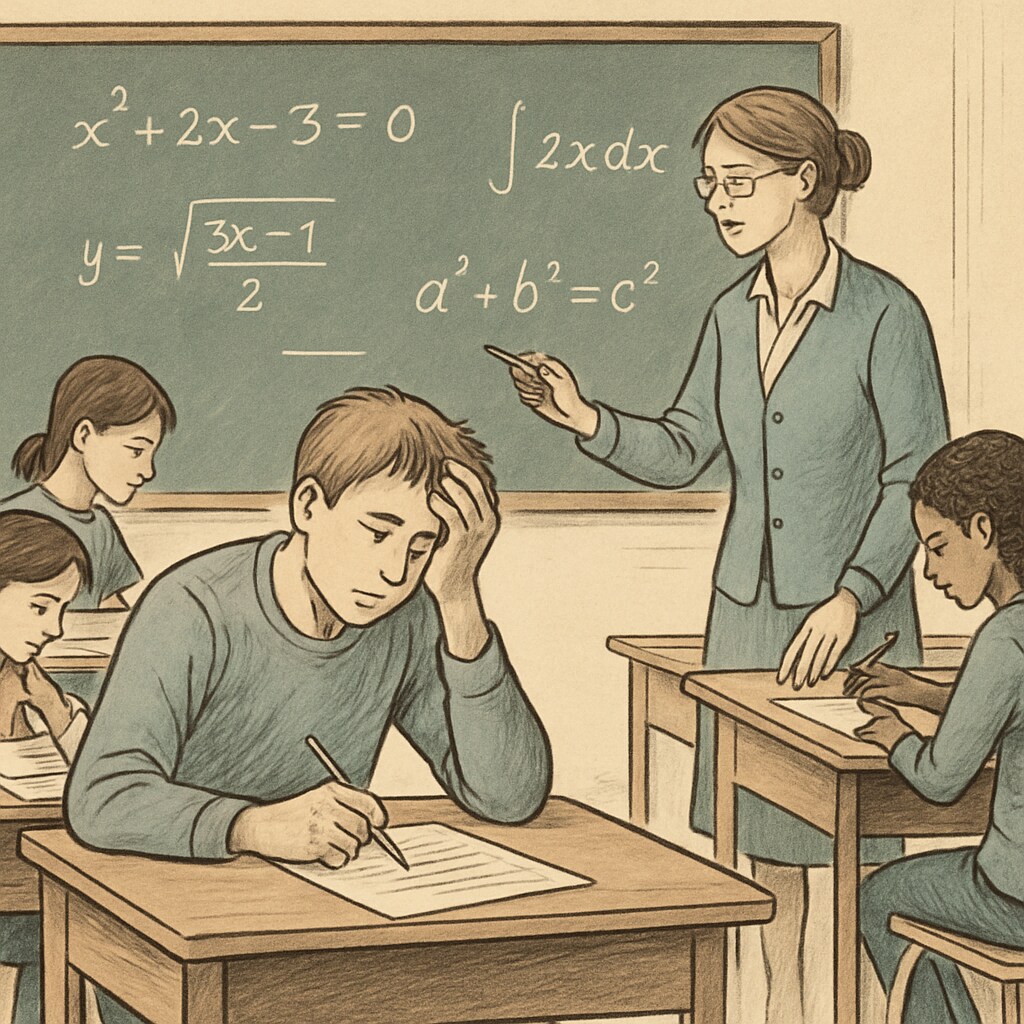Failing GCSE Maths resits is a growing concern within the UK education system, impacting thousands of students annually. The consequences of this failure are profound, often limiting access to further education and career opportunities. Yet, the issue is compounded by insufficient educational support, leaving many students without the resources they need to succeed. This article examines the challenges faced by these students and explores potential solutions to create a more equitable and supportive learning environment.
The Challenges of GCSE Maths Resits
GCSE Maths resits are often seen as a second chance for students to achieve a passing grade. However, for many, this opportunity comes with significant hurdles. Students who fail their initial exams often face stigma, diminishing self-confidence and motivation. Moreover, schools and colleges may lack tailored resources or comprehensive support systems to address the unique needs of these learners.
The pressure to pass GCSE Maths is heightened by its importance as a core subject. According to GCSE standards on Wikipedia, Maths is a prerequisite for many academic pathways and employment opportunities. Failure can lead to restricted access to higher education and training programs, creating long-term disadvantages.

Insufficient Educational Support
A critical issue is the lack of adequate support for students retaking GCSE Maths. Schools often prioritize students taking exams for the first time, leaving resit candidates with fewer resources. In addition, financial constraints in public education can limit access to one-on-one tutoring or specialized learning programs.
For example, many schools do not offer tailored intervention plans or diagnostic assessments to identify specific areas where students are struggling. This general approach fails to address individual learning gaps. As a result, students are left to navigate their academic challenges with minimal guidance, widening the achievement gap.
In such cases, external sources like online tutorials or private tutors might provide some relief. However, these options are often inaccessible to students from low-income families, further exacerbating inequality.

Proposed Solutions to Bridge the Gap
To address these challenges, a more comprehensive and equitable educational support system is needed. Below are several actionable solutions:
- Personalized Learning Plans: Schools should develop individualized support strategies for resit students, focusing on their specific weaknesses.
- Enhanced Funding: Government initiatives could allocate additional funding for schools to hire tutors and provide targeted resources for struggling students.
- Teacher Training: Professional development programs can equip educators with the skills to better support resit students.
- Accessible Online Tools: Free or subsidized online learning platforms can provide tutorials, practice tests, and interactive lessons to reinforce students’ understanding.
Implementing these solutions would not only improve pass rates but also foster a more inclusive and supportive educational environment. For further reading on strategies to improve educational outcomes, visit Education on Britannica.
Conclusion: A Call for Action
Failing GCSE Maths resits is not merely a personal setback; it reflects systemic issues within the UK education system. Insufficient support exacerbates the challenges faced by students, creating barriers to their academic and professional growth. By investing in tailored interventions, increased funding, and accessible resources, educators and policymakers can deliver on the promise of equal opportunities for all.
As we strive for a better future, let us not forget the students who need our support the most. Their success is not only a personal victory but a testament to a fair and responsible education system.
Readability guidance: Short paragraphs and clear subheadings improve the flow of information. Lists summarize key points effectively. Active voice and transitional phrases maintain engagement.


